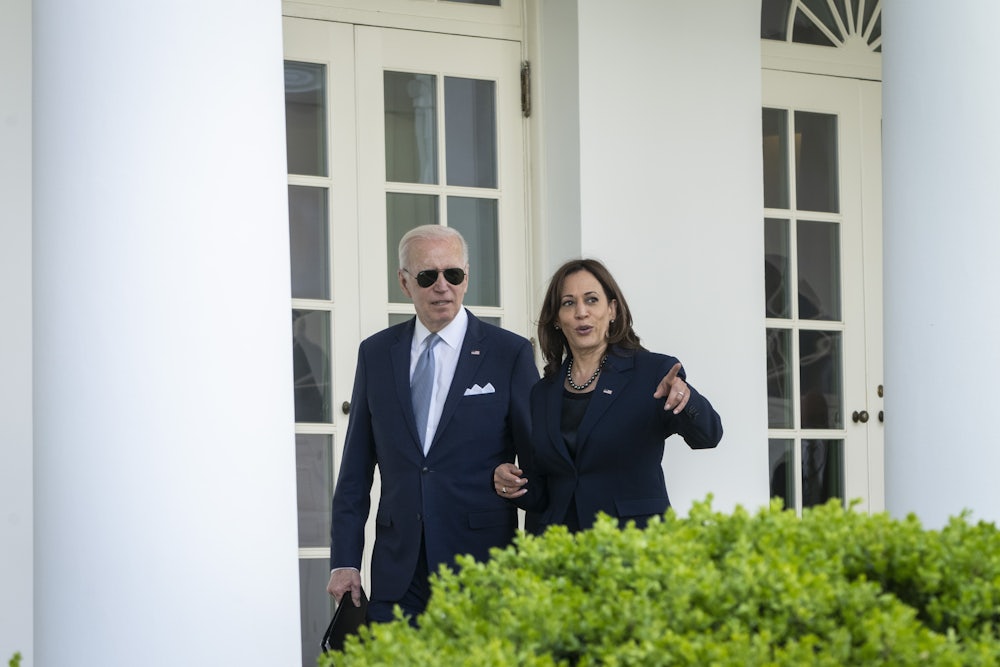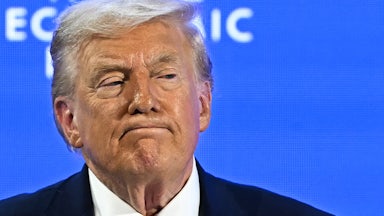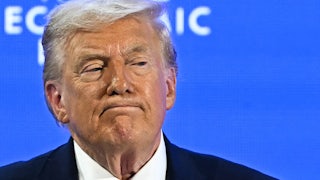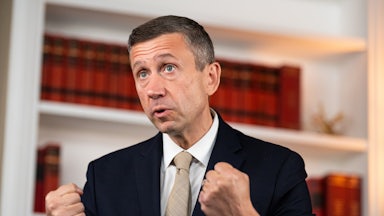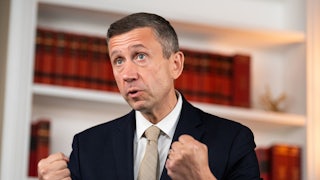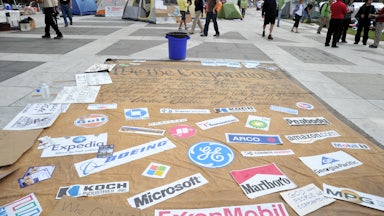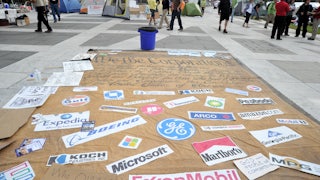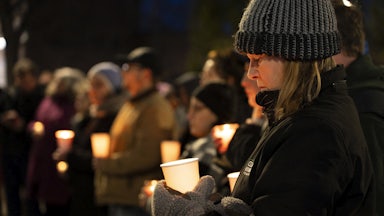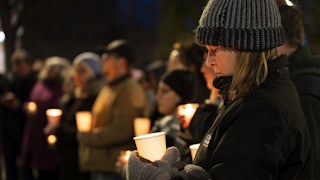As Joe Biden launched a fierce broadside against the flirting-with-fascism Republican Party at a Democratic fundraiser in suburban Maryland Thursday night, a few supporters shouted, “Four more years!” Here on the cusp of his eightieth birthday, Biden undoubtedly remembered that line as a Richard Nixon reelection slogan from 1972.
Even with Biden reveling in his summer of legislative mastery and the uptick in Democratic prospects for November, references to the 2024 presidential election are an unwelcome distraction. The combination of Biden’s age and Kamala Harris’s unimpressive start to her vice presidential years has left the Democrats in limbo.
But unlike theology, in politics there is nothing wrong with limbo—especially two years before the 2024 Democratic convention. Premature presidential speculation does little more than offer pessimistic Democrats another chance to wail, “We are doomed,” at a time when control of Congress is on the line.
Over the last few weeks—in an effort to live out every cliché about the liberal media—I have had several dinners on Martha’s Vineyard with members of the Donor Class of the Democratic Party. Invariably, the top three topics are summer traffic, eating tips, and the 2024 election. A typical comment: “Biden’s too old, and we don’t have anybody else who could beat Trump or Ron DeSantis.”
Could you please repeat after me the four most important words about politics more than two years in advance? It goes a little something like this: “We do not know.” In just the last six months, we have seen the Russian invasion of Ukraine, the obliteration of abortion rights by the Supreme Court, and congressional passage of the most far-reaching climate legislation in history. Not even Nostradamus could have predicted that unlikely trifecta last New Year’s Eve. Yet we persist in the folly of believing that the political future is knowable by endlessly watching cable news panels stuffed with interchangeable talking heads whose names appear above the word “strategist” on the chyron in the lower third of the screen.
Despite the exaggerated fears of Democratic donors, even victorious presidential candidates did not look that compelling two years in advance of the Democratic convention.
Journalist Arthur Hadley invented the term “invisible primary” to describe the presidential skirmishing during the period before voters get their say. Yet in his book, The Invisible Primary, written in the run-up to the 1976 race, Hadley barely mentioned a former governor of Georgia named Jimmy Carter.
At this point in 1990, presidential speculation centered around New York Governor Mario Cuomo and New Jersey Senator Bill Bradley, neither of whom ran. Bill Clinton in the summer of 1990 was still largely unknown; fewer than 50 percent of Democrats even recognized his name. In any case, George H.W. Bush was at that very moment cruising to an easy 1992 reelection after his approval rating hit 76 percent in the Gallup poll following Saddam Hussein’s invasion of Kuwait.
And in August 2006, Barack Obama was winning gushy headlines for his triumphal visit to his father’s ancestral home in Kenya. The New York Times described the trip in these ebullient tones: “If Senator Barack Obama is ever thinking of running for president—or changing careers to rock star—he got excellent practice in Nairobi on Friday.” But an Obama presidency seemed on a distant horizon as the 2008 Democratic race was assumed to be the property of Hillary Clinton.
There is little harm in letting the 2024 Democratic race simmer on the back burner until next spring. That interval would give Biden the time and the space to weigh the hazards—both personal and political—of running for a second term in his eighties. Ideally, Biden would come to recognize the appeal of leaving office on a high note, especially if the Democrats better expectations in the midterm elections.
If Biden chooses not to run, Kamala Harris and her supporters should understand that no one, except an incumbent president, is ever handed a presidential nomination by acclamation. White male vice presidents (Hubert Humphrey in 1968, Bush in 1988, and Al Gore in 2000) all faced spirited opposition for the nomination. And in 2016, Biden, as the sitting vice president, didn’t even enter the race because he did not see a route to victory. The danger for the Democrats is that challengers to Harris may be unjustly accused of racism and sexism for the temerity of even entering the primaries.
But there is no need to pressure Biden to make a final second-term decision immediately after the November elections. The Democratic National Committee has not even worked out the order of the 2020 primaries. And it is worth recalling that Bill Clinton dallied until October 1991 before launching his bid for the White House, little more than four months before the New Hampshire primary.
I realize that I am going against my own class interest as a journalist in trying to quiet premature 2024 speculation among the Democrats. But just because campaign reporters are an impatient breed and the hurly-burly of political speculation boosts cable TV ratings doesn’t mean that another too-much-too-soon Democratic presidential race is justified. Instead, I am hoping that the invisible primary stays invisible until the first crocus of next spring.
